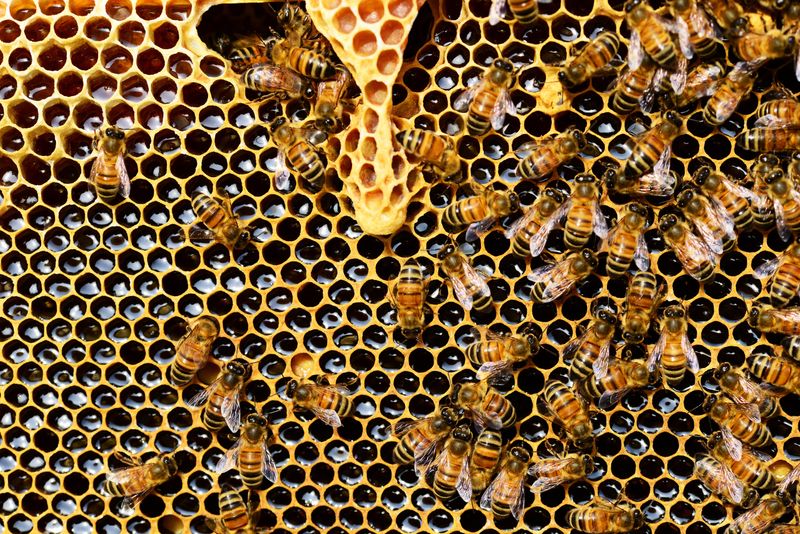Huw Edwards Rises in BBC Salary List: Examining the Factors Behind His Pay Increase
In the recently released BBC salary list, Huw Edwards, the news anchor, emerged as the highest-earning star to receive a pay rise. Edwards rose from his previous position of sixth place to fourth, with a salary range of £435,000-£439,000. This increase was attributed to the additional news specials he led over the past year, including the funeral of Queen Elizabeth II.
The BBC‘s Highest-Paid Stars
The annual report revealed that Gary Lineker remains the BBC‘s highest-paid star, earning £1.35 million. Zoe Ball, the host of Radio 2, follows with a salary range of £980,000-£984,999. Alan Shearer, a Match of the Day pundit, holds the third position, with a salary of £445,000-£449,999.
It is noteworthy that neither Lineker nor Ball received a pay rise this year. However, it is important to consider the context of their earnings in comparison to previous years and the overall salary bill for the top talent.
Raising the Threshold for Salary Disclosure
Since its first publication in 2016, the BBC salary list has disclosed the earnings of presenters earning £150,000 or more. This year, the threshold was raised to £178,000, with the justification being that the list would become too long otherwise. The BBC stated that this adjustment was in accordance with a clause in its 2016 Royal Charter, which aimed to address pay inflation over time.
The decision to raise the threshold raises questions about transparency and accountability, as a higher threshold means fewer individuals’ salaries are disclosed to the public. Critics argue that this move limits the ability to evaluate the fairness and equity of BBC salaries.
Talent Pay and Post-Covid Rise
The annual report also highlighted a significant rise in the total salary bill for on-air talent earning more than £150,000. The bill increased from £20.3 million to £24.4 million, reflecting a post-Covid rise in talent pay.
The BBC‘s Chief Operating Officer, Leigh Tavaziva, attributed this increase to the volume of work done by top talent during the pandemic period. However, she noted that the cost of the top 20 highest-paid stars had slightly decreased compared to the previous year.
As the BBC continues to navigate the effects of the pandemic, it is imperative to analyze the level of remuneration for top talent. The BBC needs to strike a balance between paying talent fairly and ensuring that public funds are used responsibly.
The Impact of New Entries and Gender Balance
The annual report also highlighted several newcomers to the BBC salary list. Ros Atkins, whose “explainer” news videos became popular during lockdown, saw a promotion to analysis editor and earned £260,000-£264,999. Chris Mason, appointed as political editor last year, experienced a significant jump in salary, from £60,000 to £225,000-£229,999.
Additionally, Laura Kuenssberg, who previously held the role of political editor, saw her pay rise to £305,000-£309,999 after transitioning to hosting “Sunday with Laura Kuenssberg.” Other new entries included Jonny Dymond, the royal correspondent, and BBC Breakfast presenters Jon Kay and Sally Nugent.
It is worth mentioning that the list now features four women in the top 10 earners: Zoe Ball, Fiona Bruce, Lauren Laverne, and Sophie Raworth. However, the disclosed salary for Fiona Bruce may not accurately reflect her true earnings, as it does not include fees from shows like Question Time and Antiques Roadshow.
Commercial Confidentiality and TV Licence Decline
The annual report revealed a decline in the number of households with a TV licence, dropping from 24.9 million to 24.4 million. This decrease can be attributed to various factors, including the cost of living crisis and a shift in viewing habits towards streaming services.
It is important to note that the salaries of individuals paid through BBC Studios, such as Claudia Winkleman and Tess Daly for Strictly Come Dancing, are not disclosed publicly due to commercial confidentiality.
Editorial: The Debate on BBC Salaries
The release of the BBC salary list triggers a crucial debate on transparency and fairness in the broadcasting industry. While the BBC has taken steps to disclose the earnings of its top talent, raising the threshold for salary disclosure has sparked concerns about accountability.
It is essential for the BBC, as a public broadcaster funded by the license fee, to ensure that it pays its talent fairly and responsibly. However, striking a balance between fair remuneration and responsible use of public funds is a challenge.
Furthermore, the public’s perception of value for money must also be taken into consideration. As viewers increasingly turn to streaming services and as competition from commercial broadcasters intensifies, the BBC must maintain public trust by providing high-quality programming while minimizing excessive salaries.
To address these concerns, the BBC should continue to review and evaluate its salary structures, taking into account market rates, talent performance, and public expectations. Striving for greater transparency and fairness will be crucial in maintaining the BBC‘s credibility as a public service broadcaster.
Advice for the BBC: Prioritize Transparency and Fairness
As the debate on BBC salaries continues, the BBC should prioritize transparency and fairness in its remuneration practices. Here are a few recommendations:
1. Clear Salary Bands:
The BBC should establish clear salary bands for different roles, taking into account industry standards and market rates. This can help ensure that talent is paid fairly and consistently within similar positions.
2. Regular Review Process:
The BBC should implement a regular review process to assess salary levels, considering factors such as talent performance, market changes, and public perception. This process should be transparent and involve external stakeholders to ensure accountability.
3. Enhanced Disclosure:
The BBC should consider lowering the threshold for salary disclosure to provide greater transparency to the public. Disclosing salaries above the current threshold of £178,000 would demonstrate a commitment to openness and accountability.
4. Salary Sustainability:
The BBC should ensure that salary levels are sustainable and justifiable in the long term. This includes monitoring the overall salary bill, considering the financial impact on the organization, and striking a balance between attracting top talent and responsible use of public funds.
By implementing these measures, the BBC can address concerns about fairness in salaries, maintain public trust, and uphold its role as a respected public service broadcaster.

<< photo by Tima Miroshnichenko >>
The image is for illustrative purposes only and does not depict the actual situation.
You might want to read !
- Huw Edwards Surpasses Stephen Nolan to Elevate News Broadcasting Rankings: A Shift in Radio Dominance
- “Leslie Van Houten’s Release: Manson Cult Follower’s Controversial Freedom Examined”
- “Joe Swash: Shining a Light on the Lives of Teens in Care”
- Unveiling the Enigmatic Huw Edwards: A BBC Presenter’s Journey
- Channel 5’s “Heat”: All you need to know about the cast and premiere date
- “Exploring the Intimate Dynamics of Joe Swash’s Close-Knit Family”
- “Decadent Delights: Unveiling the Delectable World of Wonka in Timothée Chalamet’s Captivating Prequel”




